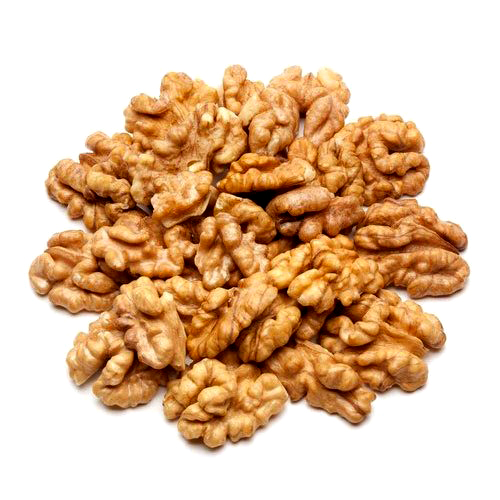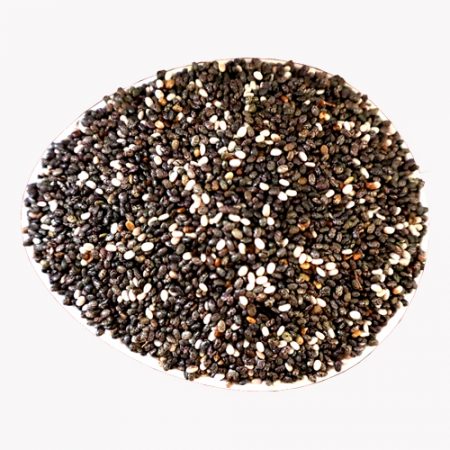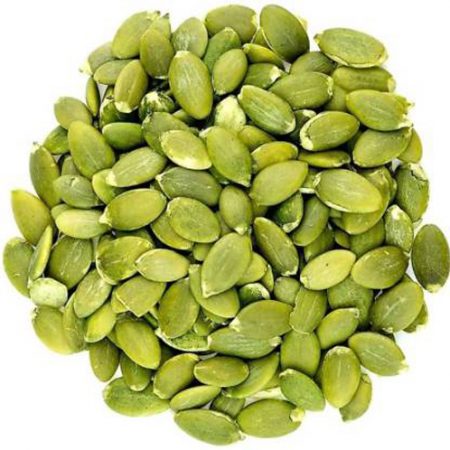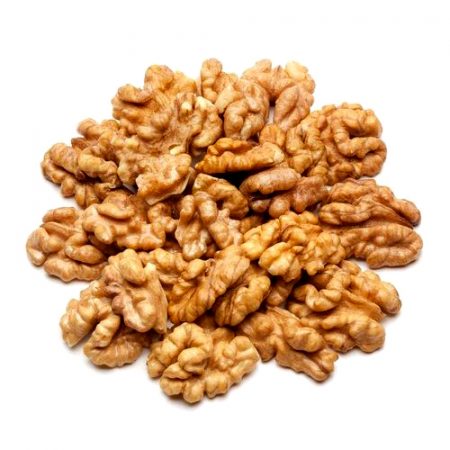Description
ABOUT
Walnuts have a long history that dates back thousands of years. Walnuts, which date back to 7000 B.C., are the oldest tree food known to man. Walnuts were known in Roman times as Juglans regia, or “Jupiter’s royal acorn.” English walnuts are believed to have originated in ancient Persia, where they were only provided to royalty. As a result, the walnut is commonly referred to as the “Persian Walnut.”
Walnuts were transported between Asia and the Middle East along the Silk Road. Caravans transported walnuts to far-flung countries, eventually expanding the walnut’s appeal worldwide through sea trade.
Walnuts come in a variety of sizes and shapes in India. Paper-shelled, thin-shelled, medium-shelled, and hard-shelled Indian walnuts are divided into four groups. Walnuts have a tough shell that resembles a human head, therefore they were called karyon by the ancient Greeks (meaning head). When you cut through the thick skin, you’ll uncover a bumpy textured meat that closely resembles the brain.
VARIETIES OF WALNUTS IN INDIA
Walnuts are popular for their tasty kernels and are native to southern Asia and America. The kernels are best eaten raw, although they can also be found in a variety of Indian dishes. India ranks sixth in the world in walnut output, with key cultivators being Jammu & Kashmir, Himachal Pradesh, Uttarakhand, and Arunachal Pradesh. Below are the names of the varieties of walnuts produced in India
1. Wilson
2. Placentia
3. Kashmiri Budded
4. Chakrata Selections
5. Eureka
6. Lake English
7. Opex Caulchry
8. Franquetfe
9. Gobind
10. CITH Walnut-1
11. CITH Walnut-2
12. CITH Walnut-3
13. CITH Walnut-4
14. CITH Walnut-5
HOW MANY WALNUTS YOU SHOULD HAVE IN A DAY
Including all dry fruits in our daily lives will improve our health because they are high in monosaturated fatty acids, and walnuts are high in Omega-3 fatty acids, which are excellent for heart health. Walnuts are possibly the only plant-based food high in Omega-3 alpha linolenic acid (ALA), the essential fatty acids required by the body. People in India, where a big vegetarian population exists, are lacking in Omega-3 and protein. As a result, eating a handful of walnuts every day is beneficial to them.
BENEFITS OF WALNUTS
Walnuts are very good for the cardiovascular system since they contain a lot of omega-3 fatty acids. A few walnuts a day may also help lower blood pressure. Omega-3 fatty acids are said to lower bad cholesterol and promote the creation of good cholesterol in the body. They also help in the reduction of inflammation and the improvement of blood vessel function. As a result, walnuts may benefit heart health.
Walnuts are high in antioxidants, which help to enhance your immunity and prevent diseases. Vitamins and minerals such as copper and vitamin B6 are found in walnuts, so include them in your diet.
Walnuts contain alpha-linolenic acid, an important fatty acid which have been linked with healthier and stronger bones. The Omega-3 fatty acids found in walnuts help fighting inflammation.
Walnuts contain significant phytochemicals as well as a high level of polyunsaturated fats, which may help with brain health and function. Omega-3 fatty acids serve a role not only in reducing oxidative stress in the brain, but also in improving brain signalling and neurogenesis (the formation of new neurons).







Reviews
There are no reviews yet.